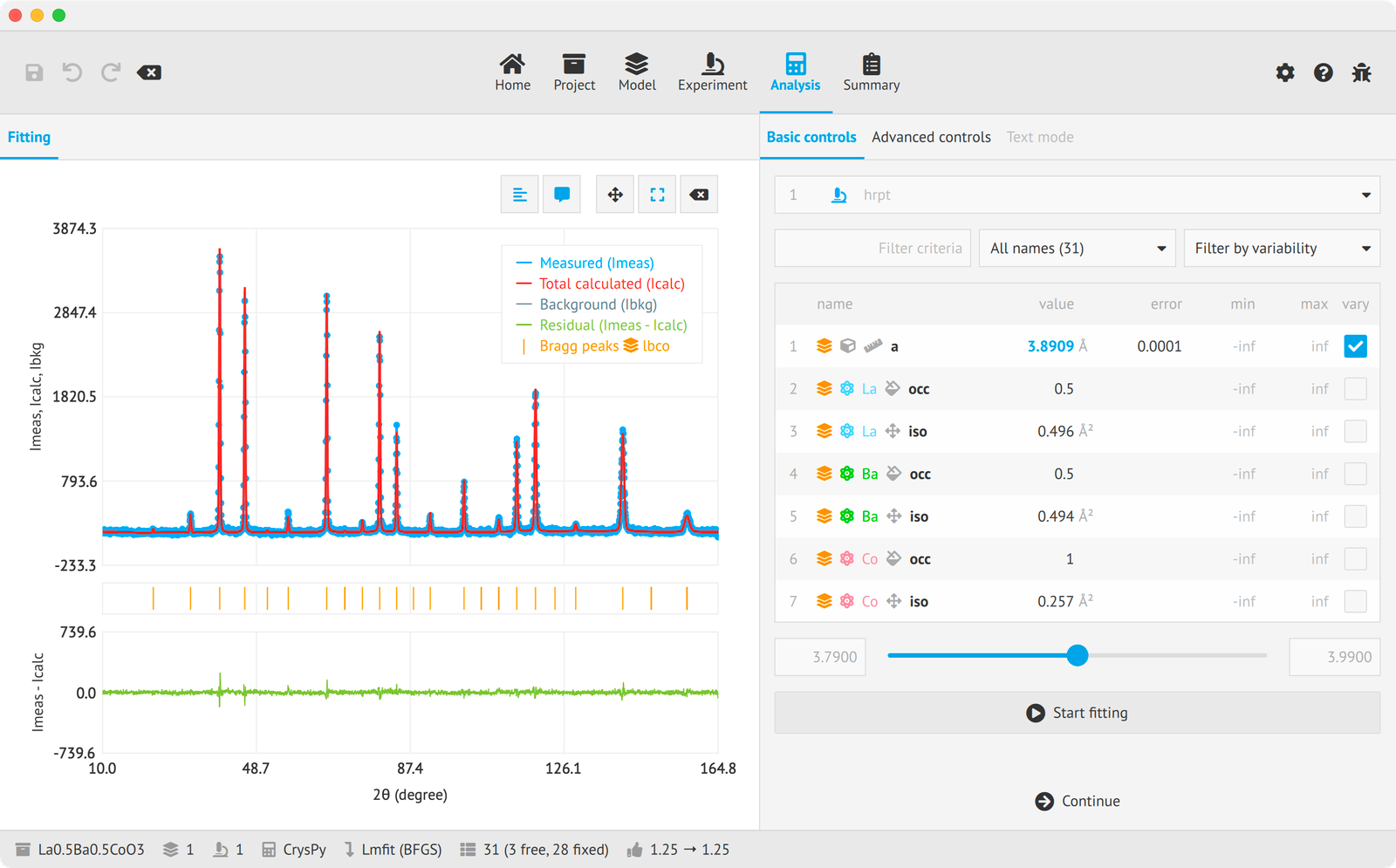Free and open-source
Anyone is free to use EasyScience-based applications and the source code is openly shared on GitHub.
Cross-platform
EasyScience-based applications works across operating systems: macOS, Windows, or Linux.
Easy to use
EasyScience-based applications have intuitive tabbed interface with a clear workflow, built-in step-by-step user guides and video tutorials.
Everything is included
EasyScience-based applications are distributed as an all-in-one package that includes all the dependencies and can be installed with only a few clicks.
Multi-functional
EasyScience-based applications integrate existing technique-specific libraries, to cover different functionality. Minimization can be done with multiple packages such as lmfit, bumps and DFO-LS.
Live update of calculations
In EasyScience-based applications, you can modify any parameter manually or with a sidebar slider, and the simulated model curve is automatically recalculated in real time.




